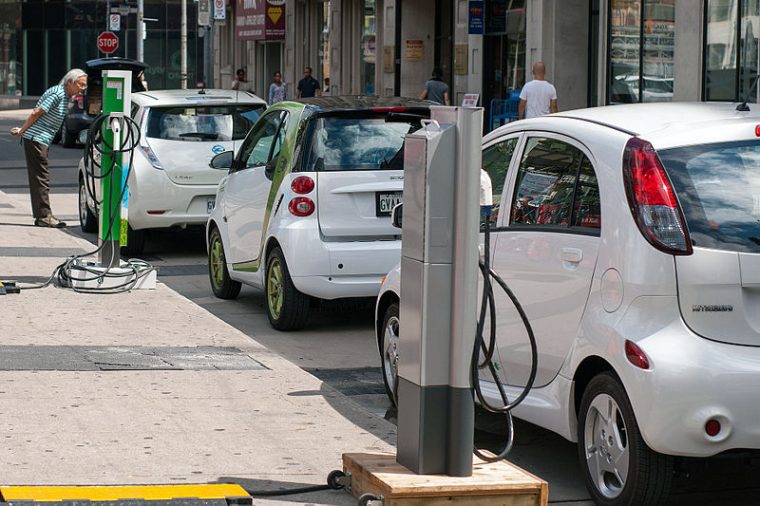
Capitol Hill
Photo: Martin Falbisoner
The proposed tax plan that House Republicans have just revealed could render the electronic vehicle (EV) tax credit extinct after the 2017 tax year.
This is sad news, considering how important this incentive has been to boosting U.S. sales of EVs, as mainstream automakers are focusing their efforts on this cutting-edge technology. The current tax credit amounts to $7,500 per vehicle purchased and applies to the first 200,000 vehicles that an automaker sells for a given year. After this total is met, any other EVs sold in the next six months will gain the owner a $3,750 deduction.

If the proposed EV tax credit gets scratched, consumers will have to pay more for EV models, which will likely curb U.S. sales for EVs.
Photo: Joe The Goat Farmer
Many in the industry have voiced their disappointment about the proposed EV tax credit repeal. GM made a corporate statement, indicating that it will continue to fight against the proposed repeal: “Tax credits are an important customer benefit that can help accelerate the acceptance of electric vehicles. Because General Motors believes in an all-electric future, we will work with Congress to explore ways to maintain this incentive.”
The Electric Drive Transportation Association (EDTA) also articulated its sorrow over this development: “We are deeply disappointed that the Committee disregarded the enormous economic, security and sustainability benefits of electric transportation in proposing to prematurely end this critical incentive. EDTA will be working with our bipartisan allies to ensure that the credit is allowed to run its course.”

Photo: Mariordo
As many automakers prepare to issue new EV models in the next couple of years, the potential repeal threatens to hit manufacturers at a vulnerable place. We anticipate more details as this legislation is finalized, likely requiring alternative-energy-focused brands such as GM to shift their goals and procedures accordingly.
News Source: Autoweek

Whitney Russell resides in Dayton, though her spirit can be found beach-bumming in Puerto Rico (the land of her half-Puerto Rican heritage). When not crafting car-related content, she can be found chasing after the most amazing toddler in the world, watching her “beaver” of a husband build amazing woodworking projects, hanging out with two crazy dogs, and visiting family and friends. She also enjoys traveling, crafting, and binge-watching period dramas when time allows. See more articles by Whitney.



